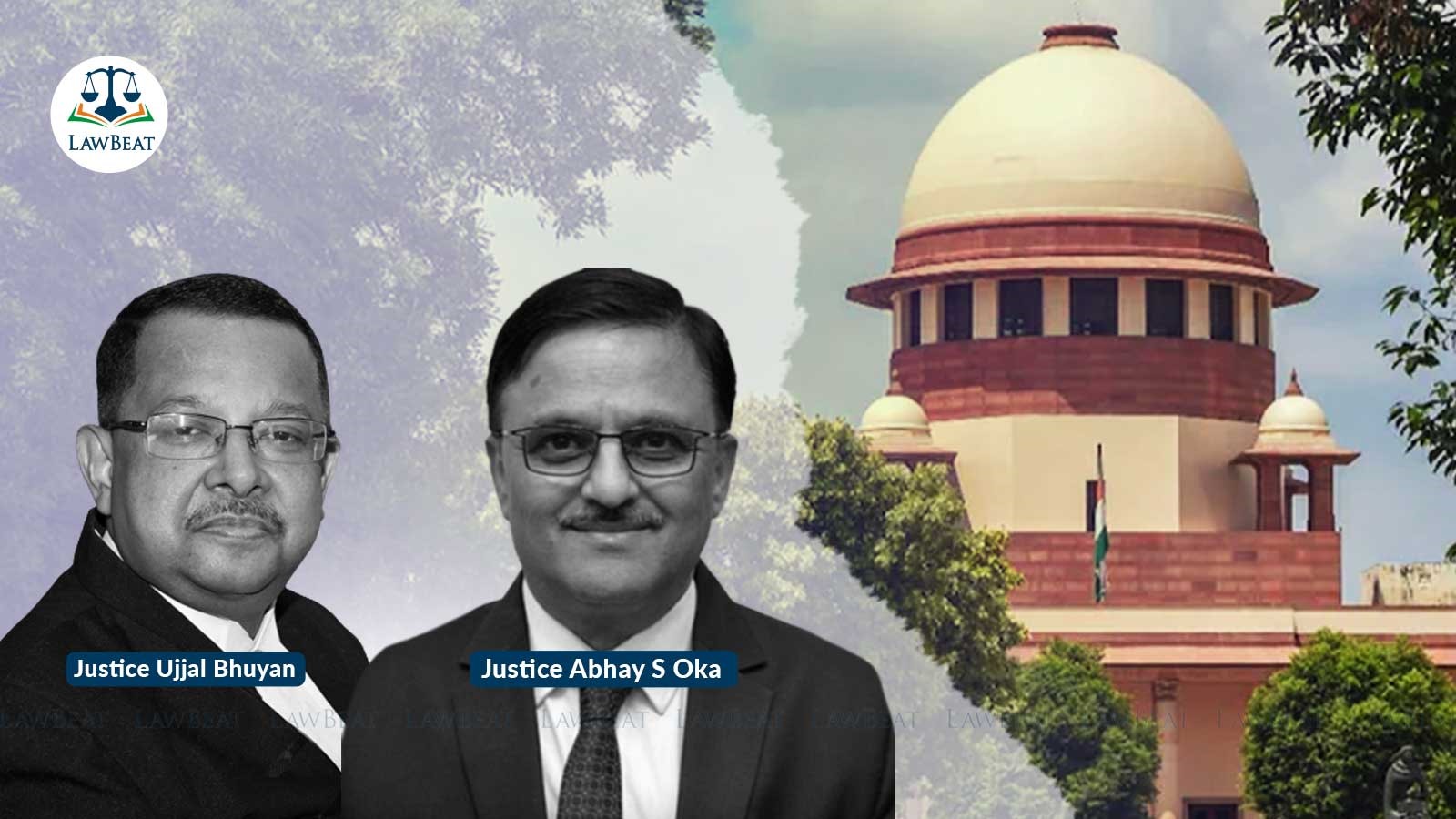Lifting Of Moratorium Doesn't Mean Revival Of Claim Not Approved In Resolution Plan Under IBC: SC

Court held that upon approval of the resolution plan by the NCLT, the claim of the respondent being outside the purview of the resolution plan stood extinguished, therefore, the award passed subsequently was incapable of being executed.
The Supreme Court has on April 21, 2025 emphasised that lifting of the moratorium does not mean that the claim of a party would stand revived notwithstanding approval of the resolution plan by the adjudicating authority under the Insolvency and Bankruptcy Code.
A Division bench of Justices Abhay S Oka and Ujjal Bhuyan, while allowing the appeal observed that moratorium is intended to ensure that no further demands are raised or adjudicated upon during the corporate insolvency resolution process so that the process can be proceeded with and concluded without further complications.
The court pointed out it is by now well-settled that once a resolution plan is duly approved by the adjudicating authority under sub-section (1) of Section 31, all claims which are not part of the resolution plan shall stand extinguished and no person will be entitled to initiate or continue any proceeding in respect to a claim which is not part of the resolution plan.
The bench noted that in Essar Steel India Ltd Committee of Creditors Vs Satish Kumar Gupta (2020), the Top Court had categorically declared that a successful resolution applicant cannot be faced with undecided claims after the resolution plan is accepted or else it would amount to a "hydra head popping up" which would throw into uncertainty the amount payable by the resolution applicant.
Court further referred Ghanshyam Mishra & Sons (P) Ltd Vs Edelweiss Asset Reconstruction Co Ltd (2021), Ruchi Soya Industries Ltd Vs Union of India (2022) and RPS Infrastructure Ltd Vs Mukul Kumar (2023), wherein it was held that even if any stakeholder is not a party to the proceedings before the NCLT and if such stakeholder does not raise its claim before the interim resolution professional/resolution professional, the resolution plan as approved by the NCLT would still be binding on him.
The bench also clarified that as per the decision in Vasudev Dhanjibhai Modi Vs Rajabhai Abdul Rehman (1970), only a decree which is a nullity can be the subject matter of objection under Section 47 CPC and not one which is erroneous either in law or on facts.
"Objection to execution of an award under Section 47 CPC is not dependent or contingent upon filing a petition under Section 34 of the 1996 Act. The High Court was not justified in taking the view that since the appellant did not file a petition under Section 34 of the 1996 Act, therefore, it was precluded from filing an application before the Executing Court to declare the award as void and hence non executable," the bench noticeably said.
Brief Background
In the present case, the resolution plan was submitted by Vedanta Ltd in 2018. While the liquidation value of the corporate debtor was Rs 2,899.98 crores, the admitted debts of the financial creditors aggregated to approximately Rs 13,395.25 crores.
The liquidation value of the operational creditors or the other creditors or stakeholders of the corporate debtor including dues of the employees (other than workmen), government dues, taxes etc. and other creditors and stakeholders was nil, as such, they were not entitled to any payment.
The NCLT approved the resolution plan on April 17, 2018.
The West Bengal Micro, Small and Medium Facilitation Council, Kolkata, however, passed an award on July 06, 2018 holding that claim of the respondent, Ispat Carrier Private Limited in respect of supply of telescopic and type mounted cranes, 75 ton crawler cranes, hydra and trailors on hiring basis, was genuine. The buyer unit was liable to pay the outstanding amount of Rs 1,59,09,214.33 with interest at the rate of 3 times of the prevailing bank rate.
The respondent filed an execution petition before the Executing Court for execution of the award.
Meanwhile, the appellant filed an application for declaring the award as a nullity and hence non-executable in view of the resolution plan approved by the NCLT.
By the order of March 03, 2023, the Executing Court noted that the judgment debtor (appellant) had not preferred any appeal against the award of July 06, 2018.
Since the appellant did not file any application under Section 34 of the Arbitration and Conciliation Act 1996, the Executing Court dismissed the application of the appellant in 2019 observing that the appellant was trying to deprive the decree holder of the fruits of the award by unnecessarily delaying the execution.
On a challenge made by the appellant, the High Court held that the Facilitation Council had the jurisdiction to proceed and pronounce the award even after approval of the resolution plan. The arbitral proceedings were initiated prior to the resolution insolvency date, suspended during the moratorium period and resumed upon expiry of the moratorium period.
Case Title: Electrosteel Steels Limited v. Ispat Carrier Private Limited
